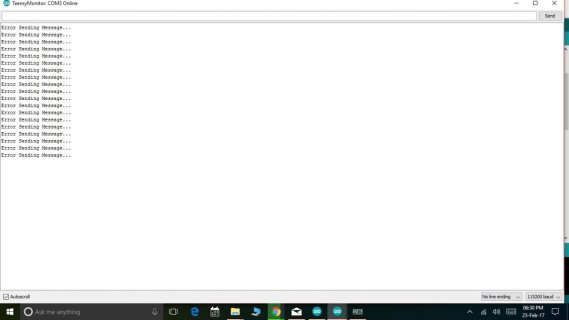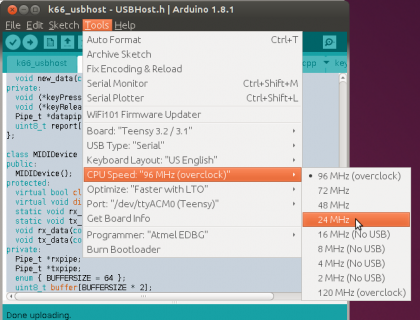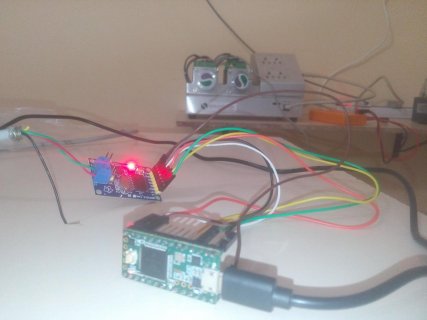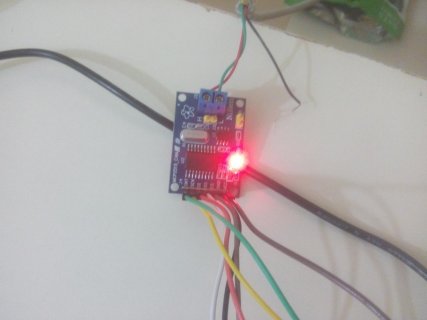hey i changed the cpu speed to 24mhz but i got same error. this is screenshot:

and i changed in the code is my can id 0x665,data length - 8 and data is 2B 40 60 00 06 00 00 00
CODE:
#include <mcp_can.h>
#include <SPI.h>
// CAN TX Variables
unsigned long prevTX = 0; // Variable to store last execution time
const unsigned int invlTX = 1000; // One second interval constant
byte data[] = {0x2B, 0x40, 0x60, 0x00, 0x06, 0x00, 0x00, 0x00}; // Generic CAN data to send
// CAN RX Variables
long unsigned int rxId;
unsigned char len;
unsigned char rxBuf[8];
// Serial Output String Buffer
char msgString[128];
// CAN0 INT and CS
#define CAN0_INT 2 // Set INT to pin 2
MCP_CAN CAN0(10); // Set CS to pin 10
void setup()
{
Serial.begin(115200); // CAN is running at 500,000BPS; 115,200BPS is SLOW, not FAST, thus 9600 is crippling.
// Initialize MCP2515 running at 16MHz with a baudrate of 500kb/s and the masks and filters disabled.
if(CAN0.begin(MCP_ANY, CAN_1000KBPS, MCP_16MHZ) == CAN_OK)
Serial.println("MCP2515 Initialized Successfully!");
else
Serial.println("Error Initializing MCP2515...");
// Since we do not set NORMAL mode, we are in loopback mode by default.
CAN0.setMode(MCP_NORMAL);
pinMode(CAN0_INT, INPUT); // Configuring pin for /INT input
Serial.println("MCP2515 Library Loopback Example...");
}
void loop()
{
if(!digitalRead(CAN0_INT)) // If CAN0_INT pin is low, read receive buffer
{
CAN0.readMsgBuf(&rxId, &len, rxBuf); // Read data: len = data length, buf = data byte(s)
if((rxId & 0x80000000) == 0x80000000) // Determine if ID is standard (11 bits) or extended (29 bits)
sprintf(msgString, "Extended ID: 0x%.8lX DLC: %1d Data:", (rxId & 0x1FFFFFFF), len);
else
sprintf(msgString, "Standard ID: 0x%.3lX DLC: %1d Data:", rxId, len);
Serial.print(msgString);
if((rxId & 0x40000000) == 0x40000000){ // Determine if message is a remote request frame.
sprintf(msgString, " REMOTE REQUEST FRAME");
Serial.print(msgString);
} else {
for(byte i = 0; i<len; i++){
sprintf(msgString, " 0x%.2X", rxBuf
);
Serial.print(msgString);
}
}
Serial.println();
}
if(millis() - prevTX >= invlTX){ // Send this at a one second interval.
prevTX = millis();
byte sndStat = CAN0.sendMsgBuf(0x665, 8, data);
if(sndStat == CAN_OK)
Serial.println("Message Sent Successfully!");
else
Serial.println("Error Sending Message...");
}
}
/*********************************************************************************************************
END FILE




